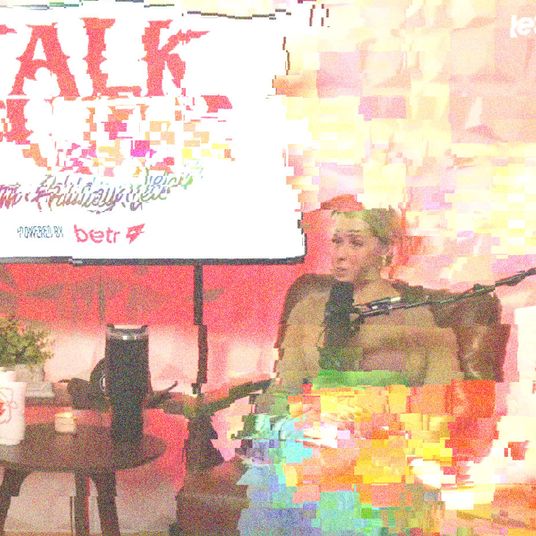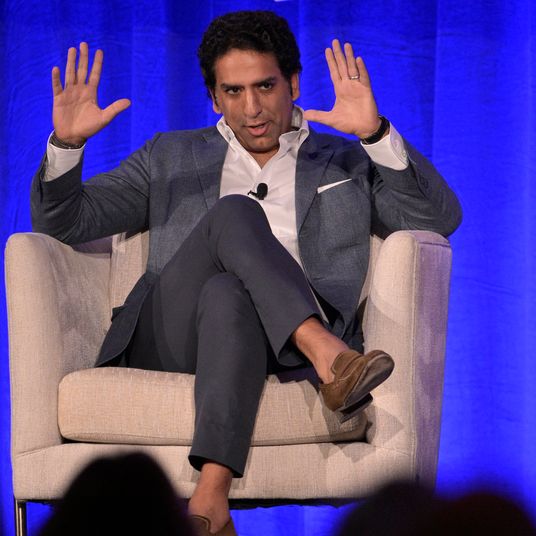
Over the summer, everyone I know went to Greece. From Greece, everyone I know posted one picture: octopus suspended on a clothesline, hanging against the Aegean Sea. The picture was a picture of an octopus (suspended on a clothesline, hanging against the Aegean Sea), but it was also a subtle message that the person behind the camera was (1) traveling, (2) traveling to Greece, the summer-vacation spot of 2024, and not Puglia, the summer-vacation spot of 2023, and (3) not taking a selfie, but (4) you know, not just taking a picture of the Aegean Sea, which would be basic, unlike this one, which (5) managed a sort of high-low effect, given the octopus was dead and clipped to a clothesline. It would have been the perfect picture of an interesting summer, except everyone else was taking it too, stuck replicating one another in an effort to be perfectly interesting.
In the fall, I stumbled upon what seemed a sort of antidote to the images I’d been watching come out of Europe (the octopus, yes, but also several videos of infirm stray cats mewling around a foot, planted on a whitewashed Cycladic street): the Dull Men’s Club, which I first spotted on Facebook. Some scrolling revealed that the group was exactly as the name would lead you to believe. It was a club for Dull Men to gather and wantonly discuss the unsexy details of their lives; to share photos of lentil soup and mowed lawns and to report mundane observations such as, “Having recently purchased a new kettle and fully read the instructions manual, I am starting to wonder if I’ll get much use out of it.” In the page’s “About” section, I found some governing rules. The group was not for those who wanted to discuss ambitions, it was not a place for those afflicted with “more-itis,” and it was not a place to discuss trends. Members were to be referred to as dullsters, not dullards — they’re boring, not stupid. It had 1.3 million members.
The dull movement is not a recent development. In the 1960s, a tax lawyer named Lee Carlson, who’d grown up in Nebraska, moved to New York City. In the 1980s, he joined the New York Athletic Club and found himself overwhelmed by the options for niche sports and activities there and in the city more broadly. “One of my mates said, ‘We don’t do judo or wrestling,’” he told me, “and one of them said, ‘Yeah we’re kind of dull, aren’t we?’ And I said, ‘Why don’t we form a dull men’s club?’” It was sort of a joke, but also not really, because thereafter they met weekly to talk about the things they actually wanted to talk about, like tire pressure and tool kits. It became a relaxing ritual. When Carlson decided to move to London in the ’90s, he made a WordPress page for the club so its members could stay in touch. Eventually, he created the Facebook group, too. During the pandemic and in the years after, he watched the club gain traction — a thousand members, then a hundred thousand, then more than a million. An offshoot, whose members called themselves by the same name, emerged and managed to accrue 1.4 million members. (Carlson has the trademark for Dull Men’s Club and said he expects his page to reach 1.4 million members soon, too.) Then came a Dull Women’s Club, a Dull Men’s & Women’s Club, and various others.
Dullness is for these members a bland blanket, a respite from an increasingly oversaturated, overprogrammed, over-whatevered world. It applies both on- and offline for its followers, who, once comfortably settled into the dull hum (other recent posts range from “I have a loose-leaf tea that I absolutely love, but I’m so bad at making it. I have a couple versions of tea steepers and I just don’t think they do a good job” to “I cooked. Don’t fall out of your chair,” with a picture of something mashed), seem happy to let go of any internal pressure to post anything interesting or to do anything interesting. Enjoy what you already, and actually, enjoy is the message. (Carlson says, “The pandemic wasn’t much of a change for the Dull Men. We just spent more time in our sheds.”)
The groups seem to find people who are reaching breaking points, or else people who are reaching breaking points seem to find them. A few years ago, Wade, a 52-year-old who worked as an emergency radio dispatcher in the Midwest, heard a mass shooting over the phone line at work. “All I heard was screaming,” he says. The experience was stressful enough that he decided to quit his job, which is when Facebook suggested the dullsters. He started posting pictures of something he’d considered too boring to share elsewhere — the specific-to-Wisconsin “rustic roads” he likes to drive with his wife on the weekends. People responded with mild-mannered enthusiasm — informing him that they too like to drive on quiet roads with their wives on weekends. Wade has an old friend in New York who owns a bespoke-suit company and spends his weekends and nights going to clients’ galas; he’d long compared their lives and wondered what the bespoke-suit-company owner thought of Wade, whose idea of an adventurous weekend is — well, driving. The dullsters dispelled the notion that he needed to worry about comparisons.
As a people who’ve picked dull as their main hobby, Wade and the other dullsters sit at the far end of a spectrum. On the other end might be the Professionally Interesting — influencers, newsletter writers, anyone who has a financial stake in making their day-to-day seem especially vibrant. As the dullsters gain in numbers, the Professionally Interesting seem to be careering toward the kind of overload that drives people to dullsterdom in the first place. Six months ago, the food writer Alison Roman sent out a newsletter for a carrot-cake recipe with this missive: “I am tired. Not so much from travel or touring (though I do not want to see an airport for a while), more tired of … myself? Specifically, tired of parading myself and the things I do and make up and down the internet. Please make this recipe. Listen to this podcast. Read this newsletter. Buy this book. Come to this event. Look at my fluffy cat. Look here, look here, look here.” Many in the middle of this spectrum — not professionalized posters, not tool-kit enthusiasts, but regular people afflicted by recreational Competitive Interestingness — seem similarly worn out. “I don’t want to go to pottery class,” a friend told me recently. “I don’t want to go line dancing.” What do you want to do? “Sit home with my beans.” (So dull.)
The poles of this dull-to-Roman spectrum are not as far apart as they may seem. And that can make attempts at carefully calibrated peculiarity begin to feel kind of ridiculous. I didn’t post from Greece, but I make my own efforts at specificity. Recently, I went into a clothing store in Brooklyn wearing my interesting suit: lower-slung jeans than I’d have worn last spring, check; an Agnès b. cardigan, check; and carrying marigolds and purple snapdragons from the deli wrapped in paper, check-check. Special me. Then across the way, I spotted another brunette shopping in low-slung jeans and an Agnès b. cardigan and carrying marigolds and snapdragons from the deli wrapped in paper. (Was she on her way to the Long Island Bar, too? Was she considering having her wedding party there, too? Had she spotted marigolds at this very shop the week before and thought, Well, those would look nice in my Brooklyn apartment, too? Probably.) I was my own octopus photo. What Wade told me about first perusing the Dull Men’s Club popped into my mind: “I never thought of myself as dull until I joined the group. And then I could see it. And I thought, This is me.”





























